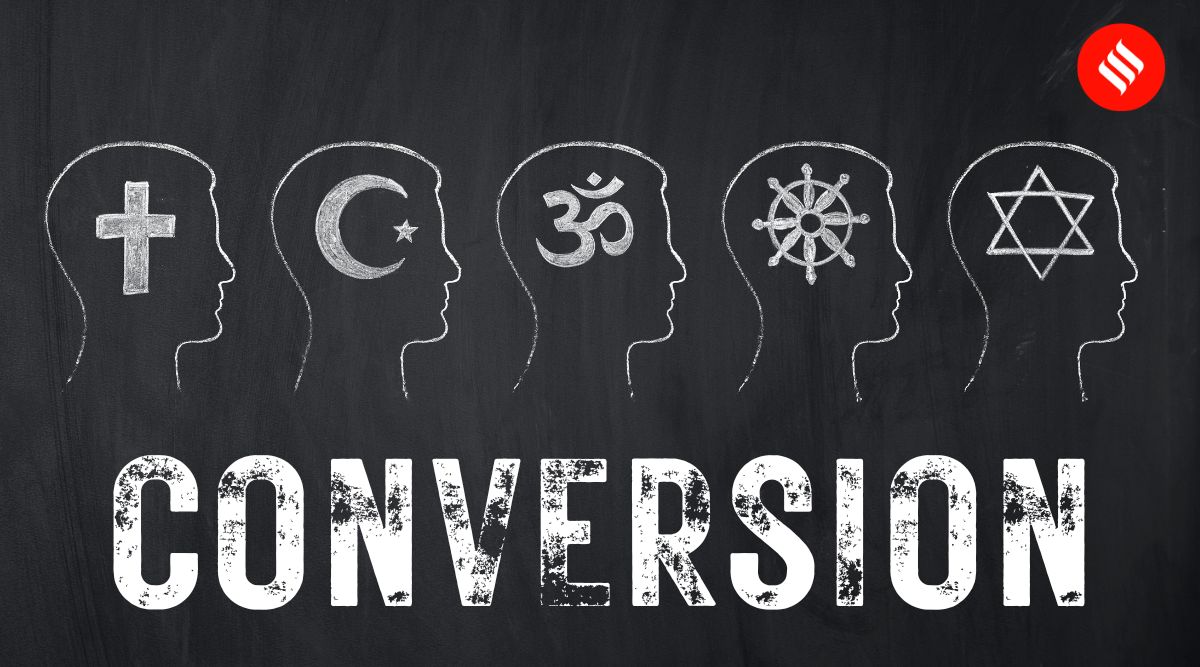
Saying that “forced” religious conversions are “very dangerous” and “could affect the security of the nation and freedom of religion and conscience,” the Supreme Court on Monday urged the center to step in and make “very serious and sincere efforts” to do to address the issue.
“The issue regarding the alleged religious conversion, if it turns out to be correct and true, is a very serious issue that may ultimately affect the security of the nation and the freedom of religion and conscience of its citizens… Therefore , it is better if the Union government makes its position clear and countermeasures what steps can be taken by the Union and/or others to curb such forced conversion, perhaps through force, enticement or fraudulent means,” said a Bench of Justices MR Shah and Hima Kohli.
The bank heard a petition filed by attorney Ashwini Upadhyay for directions to the center and says it is taking strict steps to screen such conversions.
When asked the center why it hadn’t filed its response to the petition, the Bench said: “Why didn’t you file an opposition? Very dangerous thing. Everyone has the freedom to choose their religion, but not by coercion or coercion”. The court on September 23 requested a response from the Center and others to the plea.
The Bench told Attorney General Tushar Mehta, who appeared for the center, that “a very serious and sincere effort must be made” to review such conversions.
“There may be freedom of religion, but no freedom of forced conversion. What steps have been taken by the UoI (Union of India)? … Make your point very clearly. What measures do you propose? Conversion is constitutional, but not forced conversion,” the bank said.
Mehta said the issue had also been debated in the Constituent Assembly, with proselytizing referred to as “propagate.” He said some states have enacted laws against forced conversions and the Supreme Court upheld them.
He referred to instances where people were given rice etc. to induce conversion, particularly in tribal areas.
“So you must intervene now,” the bank replied.
The court asked the center to submit its response by November 22 and released the matter for hearing on November 28.
The petition called for a finding that fraudulent religious conversion through “intimidation, threats, fraudulent enticement by gifts and monetary rewards” violates Articles 14, 21, 25 of the Constitution. It also sought orders from the Center and states to take strict steps to control such conversions and to direct the Judiciary Commission to prepare a report and a bill to control religious conversions through intimidation and financial benefits.
“The harm done to the citizens is extremely great because there is not even one district that is free from religious conversion by ‘back and forth and carrot and stick,’ ” Upadhyay said in his pleading.
The petition said that incidents are reported each week across the country “in which conversion is accomplished through intimidation, threats, deception, luring by gifts and financial gain, and also through the use of black magic, superstition and miracles, but that Center has not taken any rigorous steps to stop this threat.”
The plea pointed out that in the 1977 judgment in Rev. Stainislaus v. the State of Madhya Pradesh the Supreme Court had said: “It must be remembered that Article 25(1) guarantees every citizen ‘freedom of conscience’ and not only to the adherents of a particular religion, which in turn posits that there is no fundamental right to convert another person to one’s religion. For if a person intentionally undertakes the conversion of another person to his religion, as distinct from his efforts to transmit or propagate the teachings of his religion, this would interfere with the freedom of conscience which is equally guaranteed to all citizens of the country.” .
The SC had upheld the constitutional validity of the 1968 Madhya Pradesh Dharma Swatantrya Adhiniyam and the Orissa Freedom of Religion Act 1967.










